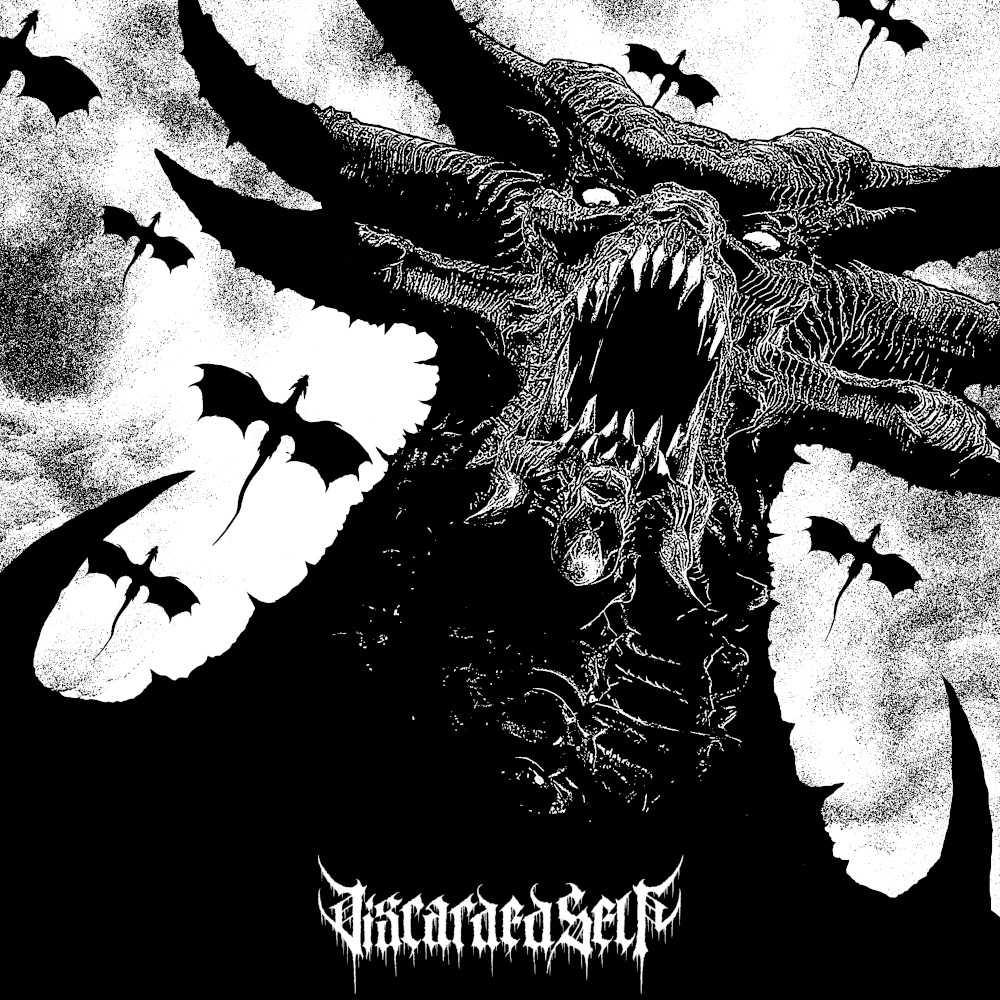 |
Country: Belgium
Style: Sludge Metal
Rating: 7/10
Release Date: 17 Nov 2023
Sites: Bandcamp | Facebook | Instagram | Metal Archives
A couple of years ago, almost to the day, I reviewed the debut album from Modder, a sludge metal band from Ghent, which impressed me because it was entirely instrumental, and they kindly sent a copy of their follow-up over for review. It's a better album, I think, even though I'm going with the same rating, because it shifts the most routine song from the end to the beginning, where it works as a mood setter. Belly Ache doesn't do a lot, but what it does is crushingly heavy, an onslaught of sound to get us set. There are things going on under that brutal riffing but they're teasingly kept so deep that we have to pay serious attention to catch the nuances.
That continues into Gazing into Domination, with a little more variety, but it drops away a minute and a half in, just as Spasm did last time out, and suddenly everything's open. It's a rejuvenation, an affirmation of everything good in the world, as if we were confined into a tiny space for so long that we don't remember what we did before it, only to suddenly be surrounded by freedom. There have only ever been clouds and now there's blue sky. It takes a while to adapt, as if we're having to relearn how to see, but we do and, when the walls descend again, we're somehow more alive.
While the whole album is emphatically sludge metal, pairing the doom with a tinge of industrial and upping the distortion even further, there are other things happening here and there to make it rather interesting and, roughly speaking, every successive track does more. Those are beats we might expect from electronica to kick off Feral Summer and again on These Snakes, the latter with a military sort of echo. There are synth lines that feel like alerts or sirens under a few of the songs almost as a substitute for vocals.
Feral Summer also speeds up at one point to hint at thrash, which is impactful with this amount of distortion. The Devil is Digital slows things right down and allows the bass to climb out of the mire to play far more obviously, only to then ramp the tempo back up again with an industrial overlay. I might like Gazing into Domination more than I apparently should as track two, but otherwise, I'm more on board with each track than its predecessor, all the way to These Snakes, the closer, which is the most versatile and ambitious of the lot.
I like this one a lot. The beats are a constant companion for half the song and they provide a real atmosphere to it, reminiscent of djembe, especially during a section that's basically a hand drum solo. There's also something that's almost a vocal and very middle eastern in vibe. It does heavy up and simplify down at points but there are always fascinating things waiting around the corner. What's more, while other songs maintain their generally high level of intensity, this one gradually builds throughout and that works really well.
The band is mostly the same as last time out, only one change evident with Jamal Talibi replacing Maxime Rouquart on the second guitar, but they feel more assured. This is heavy stuff indeed and, if you want to be sonically assaulted, your wish wil be granted here, especially on Belly Ache, but it grows in variety and depth with each of the six tracks on offer until they're somehow playing world music, merely in insanely heavy fashion. I've listened through this album a few times now and each time follows that same arc, where I enjoy the immediate bludgeoning and then let it all grow over me until the end.
I like Modder over most sludge metal bands because they're fully instrumental, a sample here and there notwithstanding, and it's the vocals that tend to be the weakest aspect of sludge for me. At this point, I could actually see Modder adding a vocalist but in a very different style to every other sludge band. I'm thinking more like Jarboe with the Swans, but more ethnic. Get a middle eastern female vocalist on board, maybe add a hurdy gurdy and suddenly Robert Plant will be guesting as a vocalist over epochally heavy riffs. How cool would that be?















